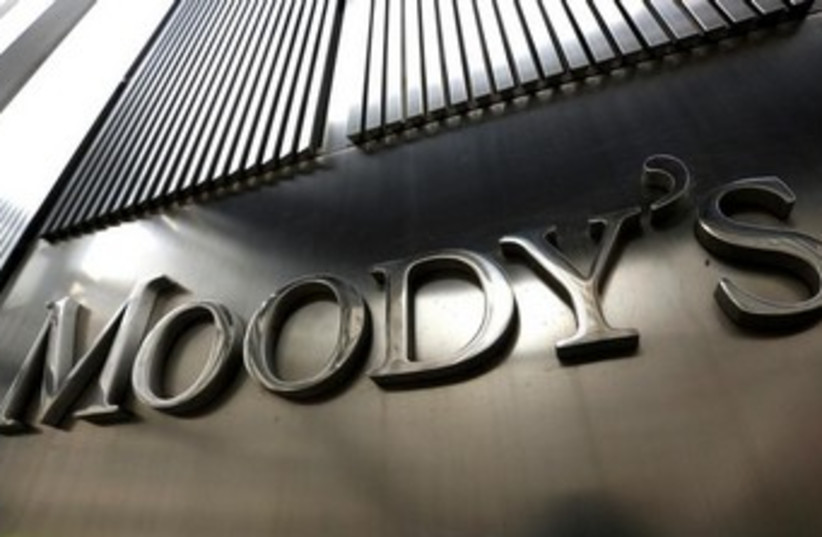Credit rating agency Moody’s on Friday concluded its review of Israel, downgrading it to A2 from A1, citing material political and fiscal risks due to Israel’s war with Hamas.
The response in Israel was varied. Center and Left factions blamed the coalition, while the coalition called the decision “baseless.”
In October, Moody’s placed Israel’s A1 ratings on review for a possible downgrade, citing the ongoing war, and warned that they may do so a week prior.
“In the past, Israel’s sovereign credit profile has shown resilience to terrorist attacks and military action,” a group of the firm’s top analysts said in a note at the time. “However, a prolonged conflict that durably and significantly impairs economic activity and policymaking would test that resilience.”
The comments came as traders pushed the cost of insuring Israel’s debt against a default to the highest level in nearly a decade.

This came mere months after Morgan Stanley downgraded Israel’s sovereign credit rating in July, citing the passing of the first law of the government’s controversial judicial reform. This caused Moody’s to warn of significant risk.
And, indeed, Israel was now been downgraded to A2, and its credit outlook was kept at negative, meaning a further downgrade is possible.
This assessment came following an assessment of Israel’s current climate, including war and political turmoil alike. The company cited concerns about the long-term effects of the war on the economy and on the government, as well as the looming threat of potential war with Hezbollah in Lebanon.
Moody’s sent a warning to Israel shortly after the October 7 massacre, saying that a prolonged war with Hamas could drag down the country’s credit score.
Israeli politicians' response to the report
However, leaders in Israel’s government responded with blanket denial of the grim outlook the Moody’s report presented.
Namely, Prime Minister Benjamin Netanyahu responded with a polar opposite statement to that presented by Moody’s – not that Israel’s economy is on the brink, that Israelis are already suffering and have a chance of continuing to suffer, but rather that Israel’s economy is “solid.”
“The rating will go back up as soon as we win the war – and we will win,” he declared.
Finance Minister Bezalel Smotrich, too, fervently disagreed with the report, saying that Moody’s was simply “a political manifesto based on a pessimistic and unfounded geopolitical worldview” rather than being based on “serious economic arguments.”
It “reflects a lack of confidence in Israel’s security and national strength, and apparently also a lack of confidence in the righteousness of its path in the face of its enemies,” he claimed.
He further complained that Hamas and Hezbollah were not designated as terrorists in Moody’s report – a report by an apolitical, bond credit-rating business.
Perhaps Smotrich’s intention – as was, from the looks of it, the prime minister’s – was to bring calm to the already-tense public, but what he said could not be further from the truth. This report is serious and reflects a very real threat to the Israeli economy.
Bank of Israel Governor Amir Yaron urged the government on Sunday, two days after Moody’s announced the downgrade, to take action and to heed the warning the Moody’s report presented.
The credit rating drop, in reality, is a warning of what is to come – of what, in fact, has already begun in Israel. That means higher interest rates, increased borrowing costs, and reduced access to affordable loans.
The current market conditions have prompted lenders to demand higher interest rates even before any downgrade was made public. This ripple effect can be felt in various sectors of the economy.
As a result, those involved and invested in the Israeli market are adjusting expectations and pricing according to such reports.
Israel’s politicians need to shake off the need to defend themselves through denial and address the issue head-on, otherwise they will be remembered as the coalition members that led to the downfall of Israel’s economy.
